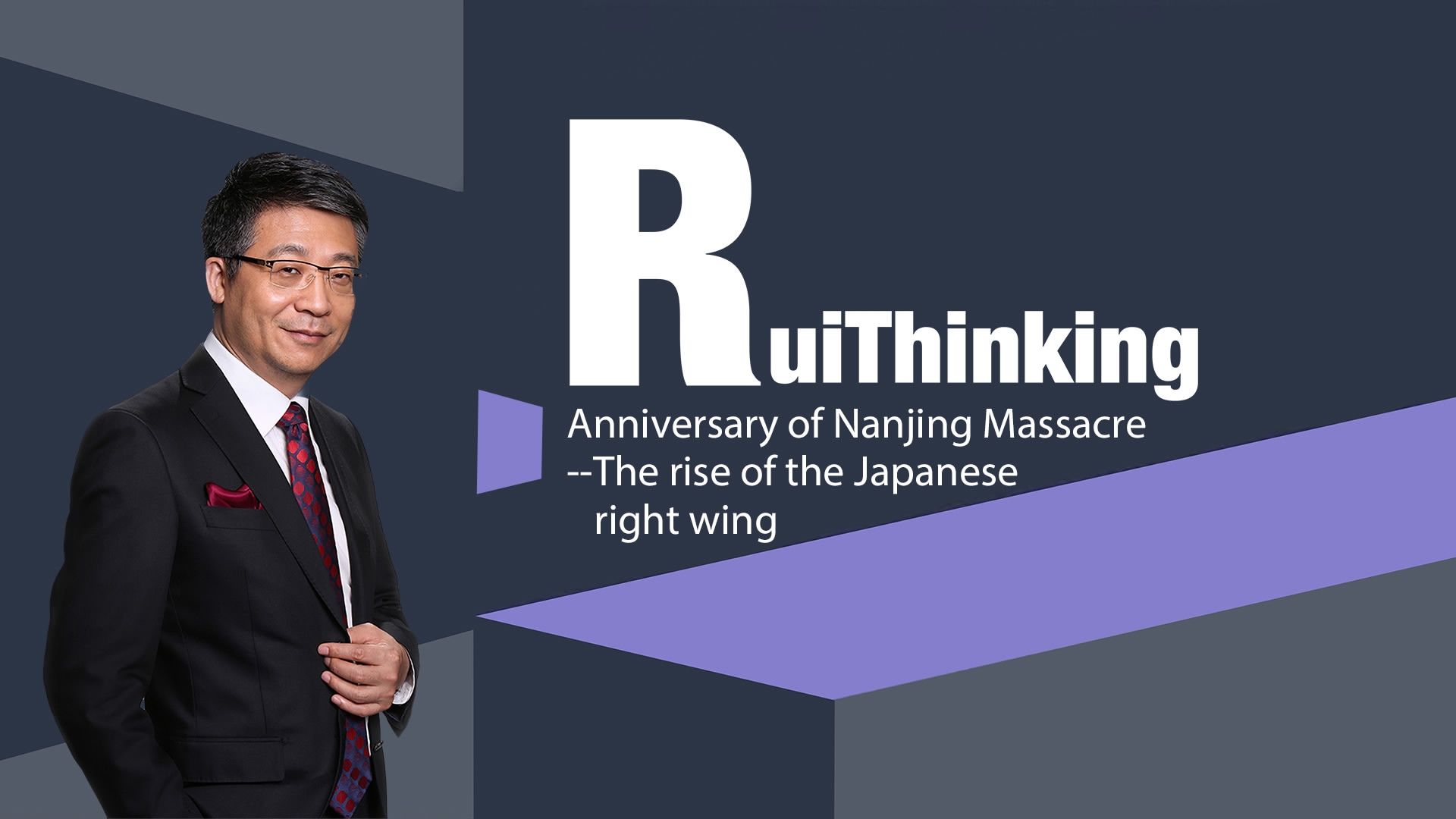
Opinions
07:51, 13-Dec-2017
RuiThinking: Anniversary of Nanjing Massacre – The rise of Japanese right wing
By CGTN's Yang Rui

About 20 years ago, one Japanese diplomat came up to me and said the death toll of the Nanjing Massacre should be 100,000 fewer than the Chinese official figure. Stunned, I turned around and left, speechless. He was not very serious about the war atrocities of exactly 80 years ago, was he? This Japanese diplomat was only wrestling with the figure instead of his conscience and how to protect the pacifist constitution of Japan.
Ten years later, I went to the Yasukuni Shrine in Tokyo to investigate exhibits of militarism. Needless to say, I was horrified by the way war dead and war criminals had been treated there. One sword mounted inside the window captured my attention. I was told by the tourist guide that this weapon wouldn’t be used until someone had been killed by it. The knife was made at least two centuries ago. But the craftsmanship looked perfect. I was reminded later by Benedict’s book The Chrysanthemum and The Sword.
Many in China blame the Japanese emperor for his role in staging the war. But I would argue the two regional wars that Japan had won in both 1895 and 1905 defeating our navy of the Qing Dynasty and Russians on our soil had led to Japan’s suicidal self-inflation. In addition, the Wilsonist union of nations had failed to condemn Japan for its annexation of our Manchuria in 1931. Its sense of island crisis had also helped Japan ravage neighboring countries and turned European colonialism into fascist tyranny. The immediate reason for Japan to start the Pacific War, however, was the maritime blockade imposed by the US navy to cut off Japan’s fuel supplies.
This reminds me of the current massive military maneuvers by the US and South Korea, the largest of their kind, under our nose. Does the war game actually aim to humiliate a nuclear-armed enemy and force the DPRK to retaliate? History shows hate and humiliation form a vicious cycle.
We seriously condemn Japanese fascism and its traditional militarism whose haunting specter could still be felt in the noise of ultra-right activists in Japanese politics. But the issue is whether an amendment to the pacifist constitution could pave the way for confrontation near the Diaoyu Islands. Does the tribute that a Japanese PM pays each year almost to the war criminals in Yasukuni represent a legacy of militarism? Why does Japan which proudly says it has undergone deep democratic reform since the end of the Second World War refuse to acknowledge its war crimes against comfort women from neighboring countries? This is not a myth but a symbol of Japanese defiance regarding war and war culture, compared with the Germans’ deep and genuine apology.
China is allegedly a forgotten ally of the US despite our huge sacrifice of some 20 million. Senior Chinese leaders say we would never forget. Our military and people are capable of defending our sovereignty and national dignity. That is our version of fire and fury.

SITEMAP
Copyright © 2018 CGTN. Beijing ICP prepared NO.16065310-3
Copyright © 2018 CGTN. Beijing ICP prepared NO.16065310-3